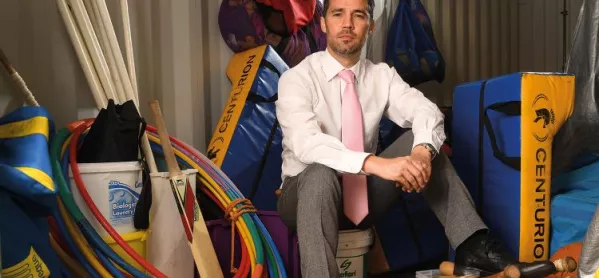
- Home
- Free schools can transform an entire community
Free schools can transform an entire community

As someone who founded and ran one of the first free schools, Bedford Free School, I tend to get geekily excited whenever I hear new research on the subject is being published.
Today, the National Foundation for Education Research (NFER) and the Sutton Trust co-published a report analysing the impact of free schools. Given how free schools are an accepted part of the education landscape these days, it’s easy to forget that the policy is only eight years old. There’s plenty of positive findings in the report, particularly the praise for academic results so far - although obviously, the number of schools concerned is relatively small so caution is required in drawing any strong conclusions.
There are also some reflections that challenge policymakers to consider the development of the programme and the direction that they have taken it in recent years. So with the above in mind, here’s my take on some of the key recommendations:
‘The government should review and clarify the mission of free schools’
Up until the recent announcement of wave 13, I think that one could legitimately have made this argument - although it’s not one I’d necessarily have agreed with. Free schools were justified and approved on a whole range of grounds - basic need, social need, low standards, innovation, lower costs, and so on. I think these are all valid and have led to lots of new understanding in the system about successfully opening and running schools.
The latest wave though is completely different, and the rationale and guidance couldn’t be clearer: the DfE wants to focus new approvals in very targeted areas, which have stubbornly low educational standards and need more school places, and ideally haven’t benefitted from free schools so far. It’s unlikely they’ll approve applications to open elsewhere.
‘The government should review the relationship between the New Schools Network, regional schools commissioners and multi-academy trusts’
This is an interesting recommendation, as the interactions and roles of the various players are pretty clear already: groups (including MATs) decide if they want to apply to open a free school; NSN supports groups with their application; and the Department for Education - in London, with RSC input - decides which bids to approve.
‘Free schools should recruit more disadvantaged pupils’
I’m passionate that free schools should be recruiting as diverse a group of students as possible. I also think they should target as many disadvantaged pupils in their area as they can, not least since the emerging evidence shows disadvantaged pupils outperform their similar students in other types of school.
We need to remember, though, that it has always taken time for new schools to bed into their community and become part of the furniture, so it isn’t really a surprise if early cohorts are a bit out-of-kilter with their locality. Indeed, when preparing to open Bedford Free School, I was advised by a few heads who had opened schools over the previous decade that the first few years would see unusual cohort profiles, but that it would settle down. This certainly proved to be our experience, so I don’t think the DfE should compel free schools to do anything that existing schools don’t have to.
It’s really interesting to ponder where the policy should go from here, but so much depends on local context. There’s no one answer, no blanket solution to make sure every school serves every child’s every need. Indeed, that was, and is, one of the biggest arguments for the whole free school policy: rather than London or LAs decreeing a solution, it empowers parents or teachers or schools or other organisations to put forward their ideas for addressing the educational needs of their community, and then get on and put them into practice.
This is as true as ever for the current wave of applications, wave 13. The targeted areas are explicitly in need of more school places and have entrenched low standards, which means great new schools have a real chance to do something particularly amazing for the communities they open in.
So, while the report out today suggests ways to take the policy in the future, right now there is an opportunity for headteachers and others to make a difference even sooner, by submitting their own plans for a school in a place that would really benefit from it. I’d encourage anyone tempted to do so to find out more and take the plunge.
Mark Lehain is the founder and former headteacher of Bedford Free School. He is now director of Parents and Teachers for Excellence and interim director of the New Schools Network
Register with Tes and you can read five free articles every month, plus you'll have access to our range of award-winning newsletters.
Keep reading for just £4.90 per month
You've reached your limit of free articles this month. Subscribe for £4.90 per month for three months and get:
- Unlimited access to all Tes magazine content
- Exclusive subscriber-only stories
- Award-winning email newsletters
You've reached your limit of free articles this month. Subscribe for £4.90 per month for three months and get:
- Unlimited access to all Tes magazine content
- Exclusive subscriber-only stories
- Award-winning email newsletters


